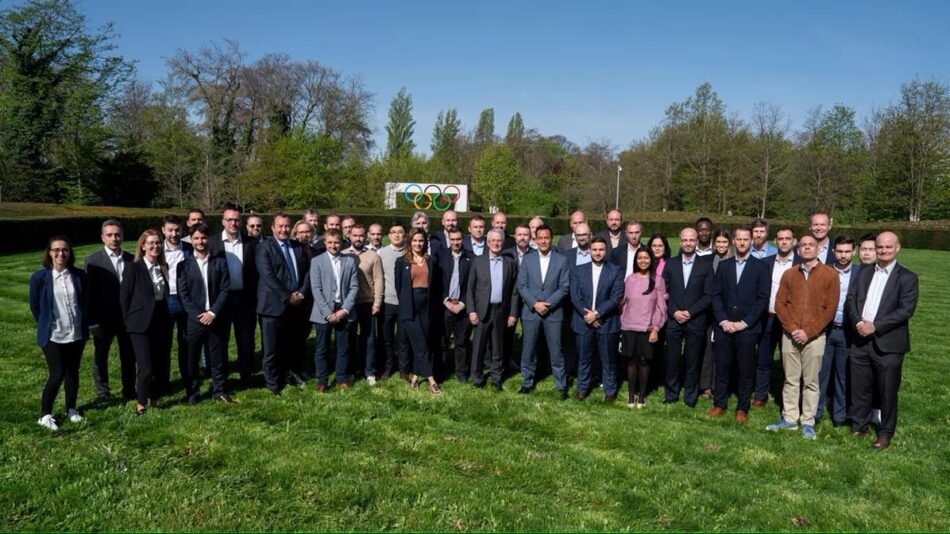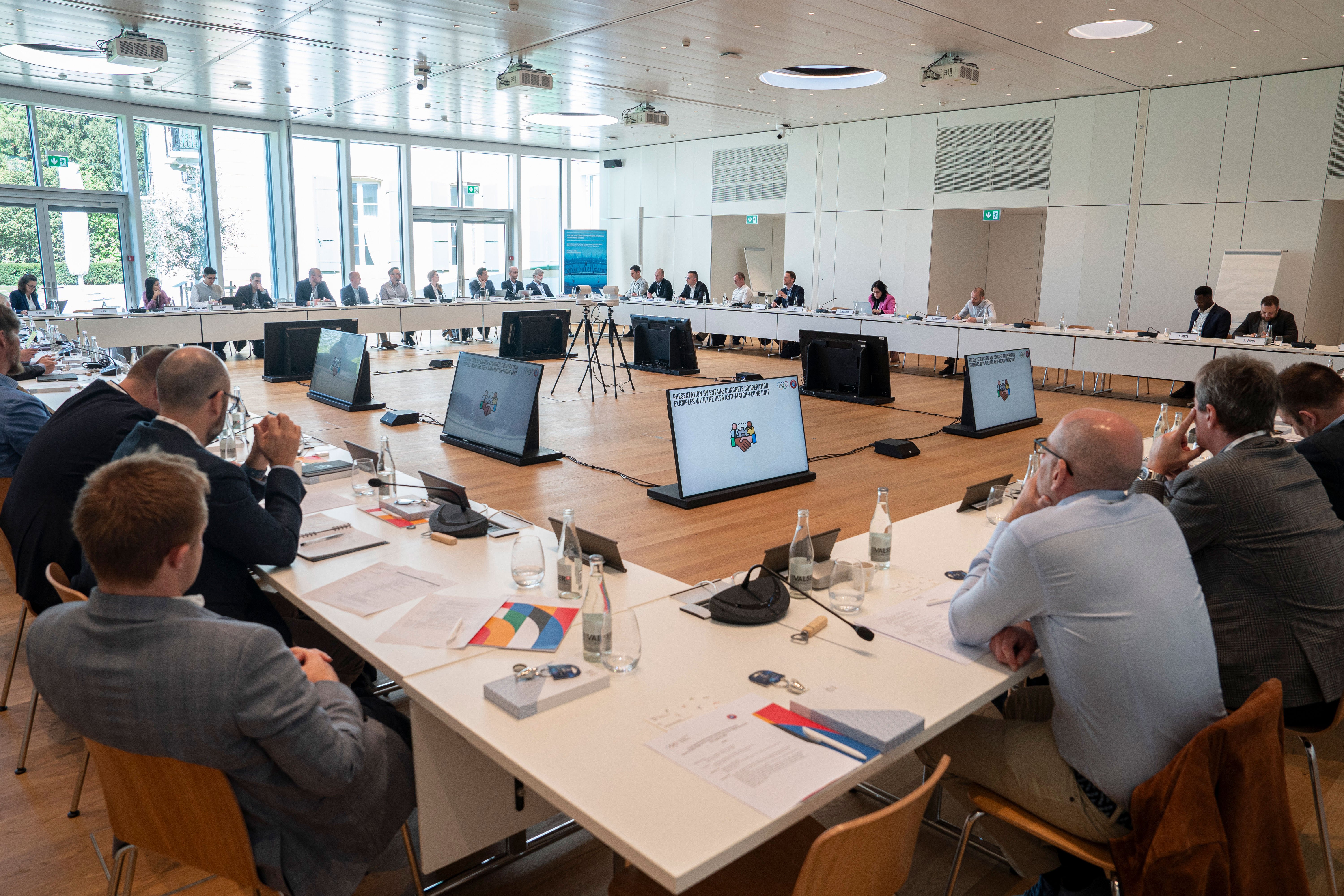IOC−UEFA workshop addresses sports betting integrity ahead of major events

International Olympic Committee
12 April 2024 – Protecting sports betting integrity through cross-sector collaboration was the focus of a recent full-day workshop, organised jointly by the International Olympic Committee (IOC) and UEFA for betting entities and International Federations (IFs).
With both the Olympic Games Paris 2024 and the UEFA EURO 2024 on the horizon, the full-day workshop, held on 11 April at Olympic House in Lausanne, provided an opportunity to align the approaches of sports organisations and betting entities, learn from each other, and strengthen collaboration for an efficient information exchange before and during these major events.
Several IFs attended the meeting to share their experiences, connect with the betting sector, and acquire new insights on the latest trends in sports betting for their own events.
The first part of the day featured presentations by the Olympic Movement Unit on the Prevention of the Manipulation of Competitions (OM Unit PMC) and UEFA’s Anti-Match-Fixing Unit, outlining its respective strategies and monitoring systems to detect irregularities and cheating.
The OM Unit PMC, set up in 2017 to oversee the implementation of the Olympic Movement Code on the Prevention of the Manipulation of Competitions by sports organisations,
follows a three-pillar strategy, focusing on (a) Regulation and Legislation, (b) Awareness Raising and Capacity Building, and (c) Intelligence and Investigations.

Monitoring sports betting during the Olympic Games
On the intelligence side, the OM Unit PMC via its Integrity Betting Intelligence System (IBIS) and with several partners, monitors sports betting on all competitions 24/7 during the Olympic Games, which will also be the case this summer for Paris 2024. During the workshop, several betting operators shared how they cooperate with the IOC on suspicious cases.
Friedrich Martens, Head of the OM Unit PMC, explained during the workshop:
“Collaboration is essential. During the upcoming Olympic Games in Paris, we will work together with a series of betting operators, associations and major betting regulatory authorities to exchange relevant information about irregular betting patterns or suspicious betting activities detected that might imply competition manipulation.”

Friedrich Martens, Head of the OM Unit PMC
“These stakeholders would also share with us information in relation to an accredited person having placed a bet on an Olympic event, which is strictly prohibited. All the information we receive is centralised in our IBIS platform.”
Vincent Ven, Head of Anti-Match-Fixing at UEFA, urged the workshop participants to strengthen cross-sector cooperation: “Sport alone cannot eradicate match-fixing. We must work together – raising awareness, sharing information, ensuring robust prevention and detection systems are in place – to protect sport and athletes. During the UEFA EURO 2024, our Germany-based staff (supported by the entire Anti-Match-Fixing Unit based in Nyon) will work hand-in-hand with betting integrity entities, betting operators and regulators, public authorities and the national associations.
“The main objective is to ensure robust 24/7 monitoring of the competition to complement our dedicated prevention and education programme for all participating athletes and officials. UEFA’s multi-stakeholder Anti-Match-Fixing Assessment Group will manage pre- and in-competition monitoring, ensuring that UEFA can immediately review and address any potential integrity threats to the tournament.”

Vincent Ven, Head of Anti-Match-Fixing at UEFA
Boosting collaboration, learning about latest trends
In the afternoon, during interactive breakout sessions, participants had time to dive deeper into possible collaboration models between sports organisations and betting entities, and discuss the latest trends in sports betting and the related challenges.
The importance of preventing the manipulation of competitions, not only as a means of safeguarding the credibility of competitions, but above all to protect clean athletes, is part of Olympic Agenda 2020+5, the IOC’s strategic roadmap.





